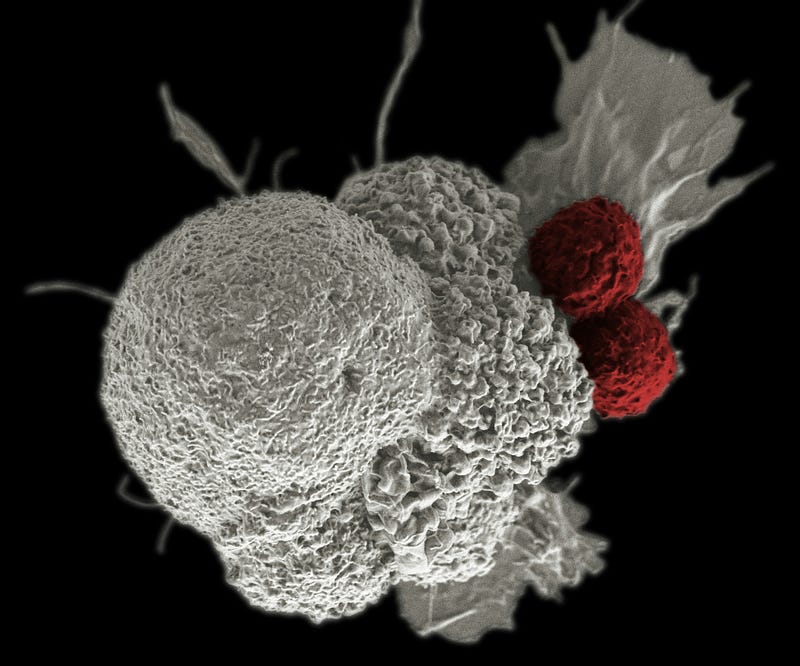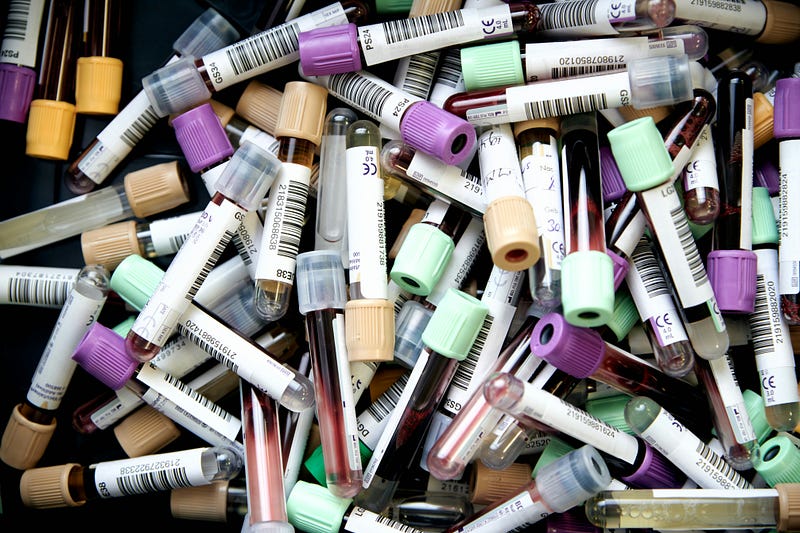A Revolutionary Blood Test: The Future of Healthcare Diagnostics
Written on
Chapter 1: The Vision of Comprehensive Diagnostics
Imagine a future where a straightforward blood test, a simple swab, or a breathalyzer could uncover every hidden health issue, heralding a new age of proactive and personalized medical care.
As a healthcare professional specializing in oncology, I envision how such a tool could enable my patients to receive diagnoses earlier—or perhaps even avoid cancer altogether. The days of anxious waiting for test results, endless referrals to specialists, and the tragic outcomes of misdiagnoses could soon be behind us.
Such innovations could revolutionize healthcare by providing early and precise diagnoses, minimizing the need for multiple tests and referrals, and ultimately enhancing patient outcomes. The pursuit of a diagnostic "holy grail" has long fascinated scientists and medical practitioners alike.
Section 1.1: Lessons from Theranos
However, I acknowledge the cautionary tales surrounding this quest. The rise and fall of Elizabeth Holmes and her company, Theranos, which falsely promised groundbreaking blood-testing technology, serves as a stark reminder of the potential pitfalls in advanced medical diagnostics.
When Theranos emerged, claiming to perform hundreds of tests using just a single drop of blood, it seemed almost too good to be true. Ultimately, it was revealed that the groundbreaking technology they touted was nonexistent.

Their assertions of performing extensive medical testing with minimal blood were unfounded, as their devices lacked accuracy. Following the closure of their labs, both Holmes and her partner, Sunny Balwani, faced charges for deceiving investors and the public regarding their product's capabilities.
Chapter 2: Advancements in Blood Testing
Today, thanks to breakthroughs in genomics and proteomics, we are closer than ever to achieving a "one test to rule them all." Integrating artificial intelligence with these advancements, we stand on the brink of a healthcare revolution.
In this essay, we will explore the technologies that are making this comprehensive diagnostic test a reality, as well as the associated benefits and challenges it presents, alongside ethical considerations in a world where disease detection becomes more straightforward.
Section 2.1: The Impact of COVID-19 on Testing
The urgent demand for rapid testing during the COVID-19 pandemic accelerated research into tests capable of detecting multiple diseases simultaneously. The Siemens Advia 1800, roughly the size of a compact refrigerator, can conduct numerous tests at once.
Yet, the challenge remains: can we design a desktop-sized analyzer that performs hundreds of tests using just a few drops of blood?

Additionally, we must consider whether there is a limit to the number of tests a single blood sample can yield. Certain tests require chemical reactions that alter the blood's composition, making it unsuitable for further analysis. This is why I was skeptical of Theranos' claims.
Section 2.2: Learning from the Past
After the Wall Street Journal exposed Theranos' inability to deliver on its promises, investor confidence waned. This highlights the need for rigorous validation in the development of innovative medical technologies.
Improving disease risk prediction is crucial. For instance, a cohort study conducted within the UK Biobank Prospective Pivot Study (UKB-PPP) provided valuable insights.
Researchers analyzed plasma samples for 2,923 unique proteins and developed models predicting the risk of 218 diseases based on incident cases over a decade.

The findings, published in Nature Medicine, indicated that this blood test could forecast 67 major diseases, including cancer and dementia, up to ten years in advance. The lead author, Dr. Claudia Langenberg, expressed excitement about identifying new screening and diagnostic markers from the vast array of measurable proteins in human blood.
Chapter 3: The Promise of Proteomics
The key takeaways from the study demonstrate that protein-based prediction models outperformed traditional clinical models. Using a limited set of crucial proteins yielded better predictions for a range of diseases than models based solely on clinical data.
This suggests a significant potential for protein-based models, particularly those utilizing sparse protein signatures, to enhance disease prediction.
The information gleaned from proteomic profiling can significantly contribute to better risk assessments and personalized medicine approaches, despite the challenges that remain in this evolving field.
As we look to the future, the prospect of having a comprehensive blood test that can accurately diagnose a multitude of conditions is not merely a dream but a tangible goal that could dramatically change the landscape of healthcare.